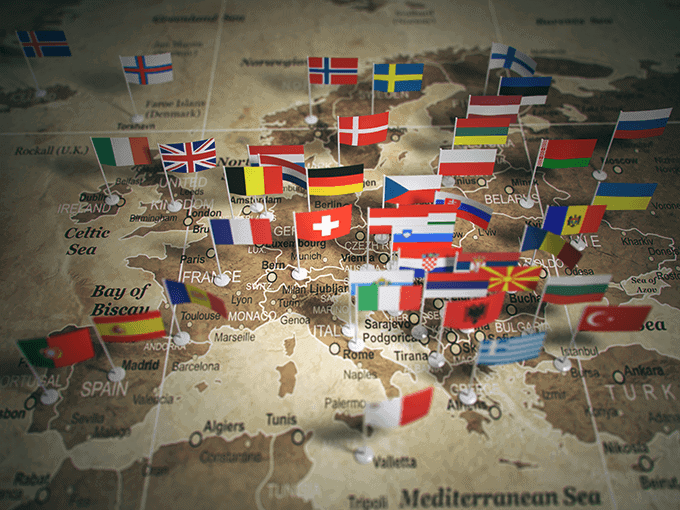By Ashley Preen
March 31, 2021
This article is intended to provide information and a general understanding. It should not be considered financial or legal advice. Please consult with your accountant regarding your particular VAT scenario to ensure you are in compliance with all the latest VAT regulations.
Depending on whether you sell goods, services, or digital goods, there might be VAT changes you need to take heed of after 1 January 2021 as a result of Brexit.
The overriding concept to understand about UK-to-EU sales is that these are no longer considered “intra-community” sales and are roughly the equivalent of selling to any other country outside the EU, such as the USA.
This means that goods leaving the UK to the EU will now be treated as exports.
The good news is that the trade agreement reached before 31 December 2020 resulted in zero tariffs or quotas for goods sold to the EU (i.e. “exports”).
The rules for importing from non-EU countries now also apply to EU countries. Currently, that rule means that you must pay import VAT for any goods imported into the UK. This is usually paid when the goods arrive at the border, or soon after.
Part of the Brexit deal, however, includes a clause to postpone payment of this import VAT so that UK VAT Registered businesses can account for this VAT on their VAT returns instead of having to pay the VAT at the border. This relaxation applies to all imports, not only those from the EU.
You will still need to pay customs duties and excise duties on certain products.
As of 1 January 2021, any goods valued at £135 or less require VAT to be collected at the point of sale.
These rules also apply to B2B sales that are not higher than £135.
UK VAT registered companies can zero-rate exports to the EU. Import VAT and respective tariffs will be due on the goods when they arrive at the EU.
There is no longer any need to submit EC Sales Lists for goods sold to the EU. You only need to retain evidence that the goods have indeed left the UK. This is the same evidence required for sales to non-EU countries.
Businesses in Northern Ireland are still required to provide EC Sales lists.
Services supplied to EU countries will follow the same rules as services to non-EU countries.
Which country’s VAT needs to be charged depends on the existing “place of supply” rules which contain some minor changes.
If you are a UK business and supply digital services (music downloads, ebooks, software, apps, web hosting, and other services) to non-businesses (B2C), then the “place of supply” is where your customer is situated.
Essentially, all digital services to non-businesses in the EU will need to have the VAT rate for the consumer’s country added. So, if you sell digital downloads to someone in Belgium, then you need to add Belgian VAT to that digital download. You then need to declare that VAT in that member state.
Essentially, all digital services to non-businesses in the EU will need to have the VAT rate for the consumer’s country added.

So, if you sell digital downloads to someone in Belgium, then you need to add Belgian VAT to that digital download. You then need to declare that VAT in that member state.
Furthermore, the UK VAT MOSS (Mini One Stop Shop) can no longer be used to report VAT charged across EU member-states. UK businesses will now need to register for the non-union MOSS system in one of the EU’s member states.
It is possible to do this in Ireland.
MOSS allows you to report VAT earnings for all member states in one place.
The alternative to this is to register in each EU member state that you have made a sale in and then to report the VAT directly to that state’s tax office.
If you are in the EU and sell digital services to the UK, you will need to register for VAT in the UK and submit a UK VAT when necessary.
Unlike goods and digital services, the VAT regime for other business services also applies to Northern Ireland because there isn’t a separate VAT regime in place for services in general (source).
B2B services between two taxable persons (i.e. businesses) are generally located where the customer is located. Unlike goods, this does not require VAT to be charged on the service.
For example, if a UK business delivers a service to a German company, the UK company would zero-rate the VAT and state it in the invoice. And vice versa.
Note: By “taxable person”, we mean any business, not only a business with a VAT. It is only necessary to prove that the company being served really is a business and an EU or UK VAT ID is still a way to prove this.
For B2C services, however, the service is considered to be located where the supplier is located. Therefore, if a UK business supplies a service to a German individual, the UK business will need to charge UK VAT.
But the rule changes when the service is something like accountancy, legal services, consultancy services, financial services, and certain other services. These services are taxable where the recipient is located and, in these cases, would therefore also be zero-rated.
For information on what to write on your invoices in these cases, see this article.
Is this all clear as mud? Yes, it’s unbelievably involved and particularly complicated if your business spans goods, digital services, and normal services, as well as does imports and exports!
But even if your situation is not that complicated (we do sympathise if it is), please do contact your accountant to speak to them about VAT rules if you have any questions. It would be unfortunate to have to pay HMRC (or one of the EU governments) VAT that you had not accounted for in your sales because you were uninformed.